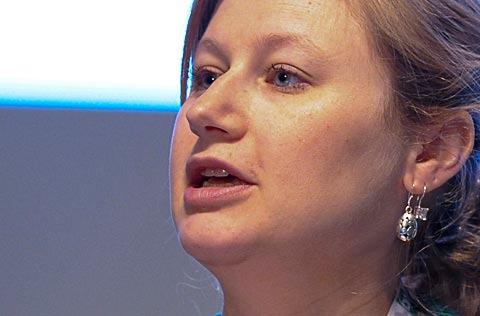
UNISON urged its regions and branches to take an active role in supporting the “courageous” trade unionists in Colombia, with campaigns that will support communities, workers and their families.
Colombia remains the most dangerous country in the world to be a trade unionist – with one trade union member murdered every three days. An estimated 3,000 trade unionists have been killed in recent years.
Despite the Colombian government’s attempts to promote a more humane and progressive image, human rights abuses continue.
Josie Bird of the NEC, told delegates that western multinational companies played their part in such abuses, “brutally preventing trade unionists from operating, in collusion with the paramilitaries, this is neo-liberalism in its most extreme form.”
Colin McArdle from Newcastle City branch said that such companies were “pushing through the deregulation of labour rights and environmental protections.”
UNISON has played a major role in recent attempts to encourage a peace process between the Colombian government and the FARC rebels.
In November the union’s Northern Ireland region joined a delegation of cross-party Northern Ireland politicians and trade unionists who visited Colombia to share their experiences of the peace process that led to the Good Friday Agreement in 1998, in the hope of informing and inspiring the Colombian peace talks.
Delegates agreed to continue such support, including the political and financial support of Justice for Colombia’s peace campaign.
A morning of international debates included a passionate session on Palestine, culminating in the union passing a motion that reasserted its principal aims for:
- Israel to withdraw to the borders of 1967 borders, demolish its apartheid wall and remove all its settlements;
- The right of Palestinians to establish a state in the West Bank and Gaza strip, with its capital in Jerusalem;
- The Palestinian refugees eight to return.
Many speakers felt that the positive gestures of previous years had to be acted upon with greater urgency.
Diane Kelly of North West region called for “not just reaffirmation of policy, but putting policy into action.”
Ms Kelly spoke of the Russell Tribunal on Palestine, which concluded that Israel’s treatment of the Palestinians amounts to apartheid as defined under international law.
“It’s important that the findings of this eminent tribunal are widely known.”
She also condemned the private companies that were “swarming around” public service contracts which service the illegal settlements, construct the apartheid wall or provide security in prisons that hold Palestinians illegally transferred from the occupied territories.
The union should challenge the awarding of such contracts, Ms Kelly said, urging delegates to “up the ante.”
Some speakers against the motion worried that it did not acknowledge progressive Israelis.
But as one delegate commented, “It is not people who cause the problem, but government. We oppose the Israeli government.”
North West’s amendment was also passed, welcoming the Russell Tribunal’s call for the International Criminal Court to recognize Palestinian jurisdiction, and for a special session of the UN general assembly to be convened on Israeli apartheid.
The NEC was instructed to circulate the tribunal’s final report to branches and regions and actively campaign for support of its recommendations.
